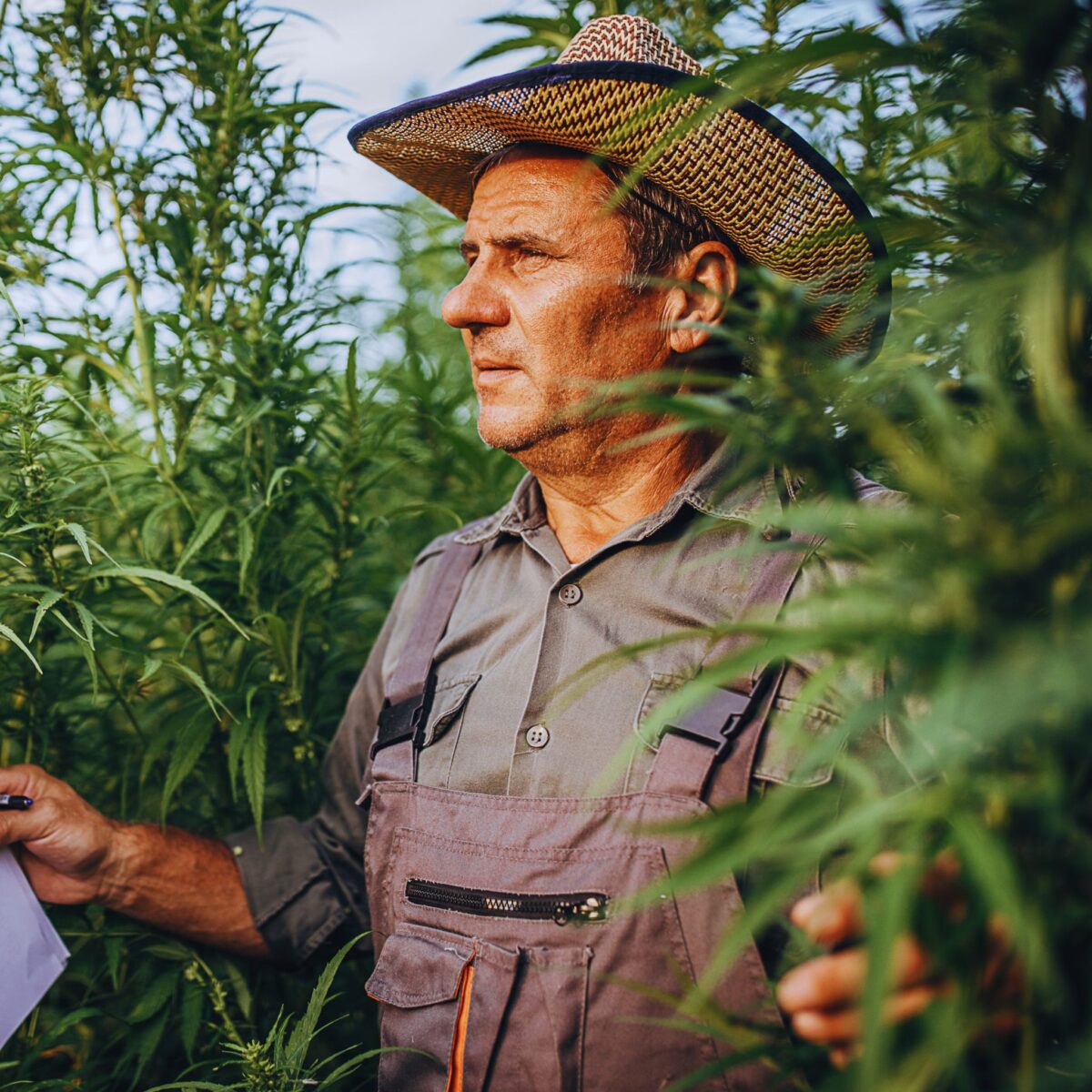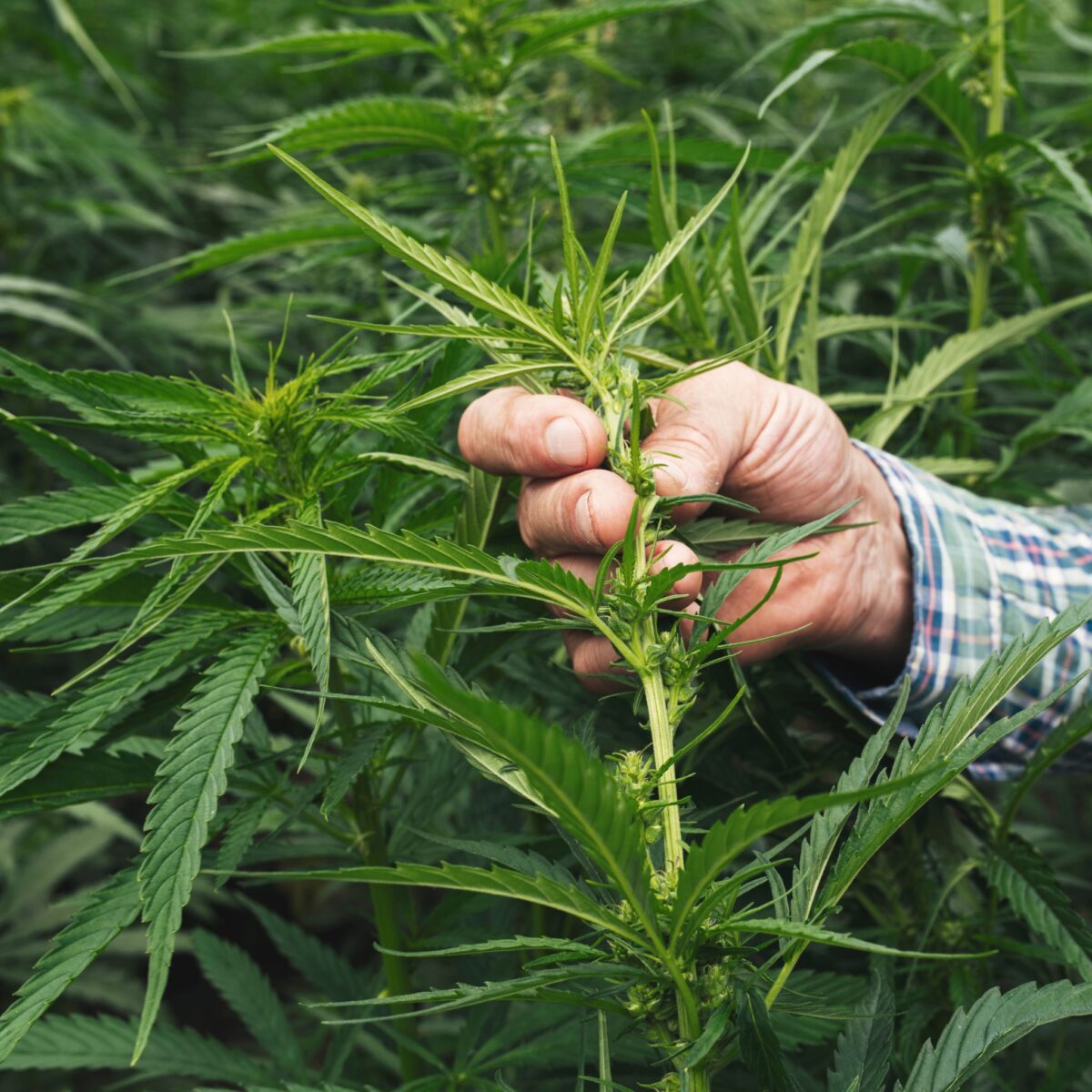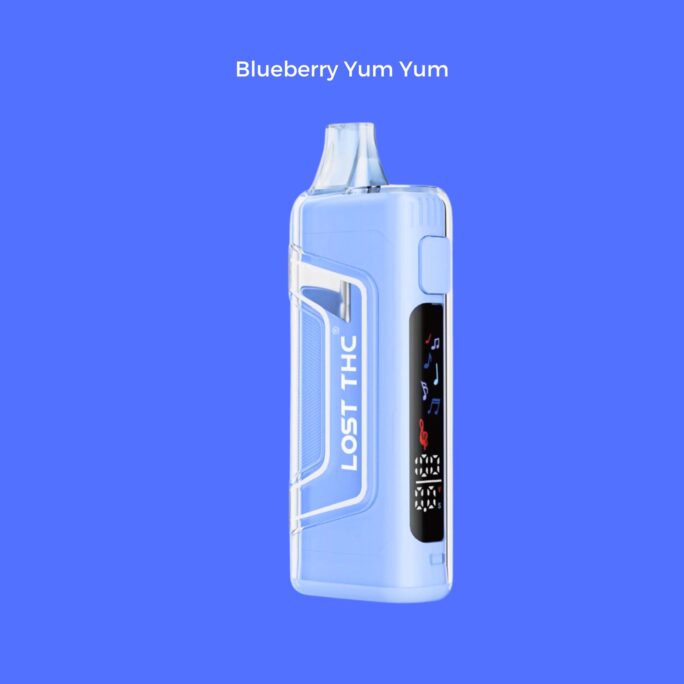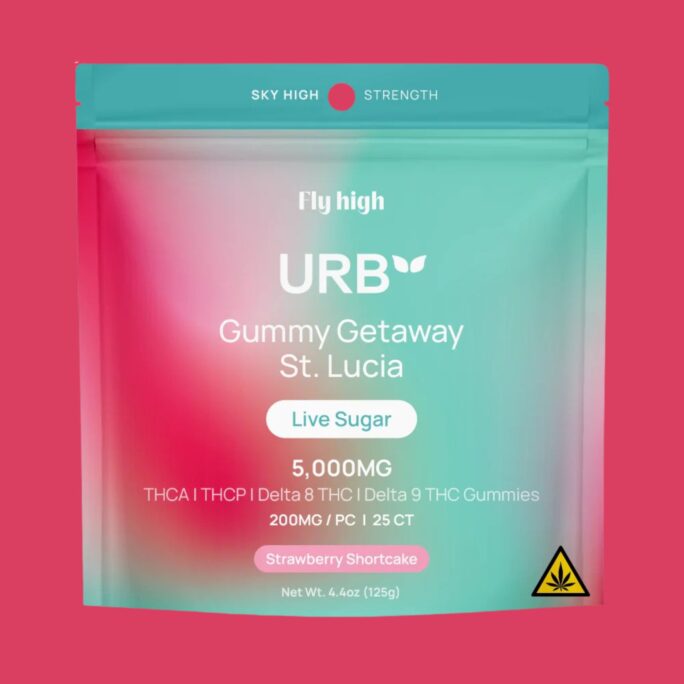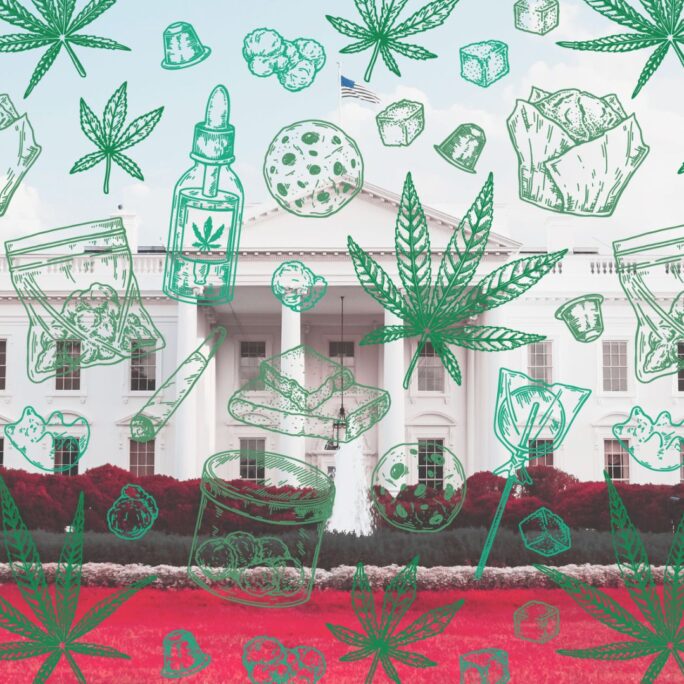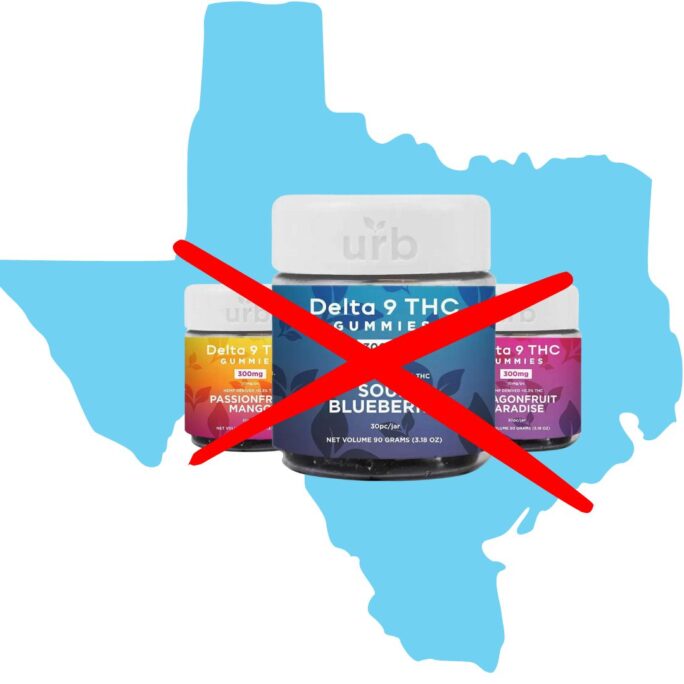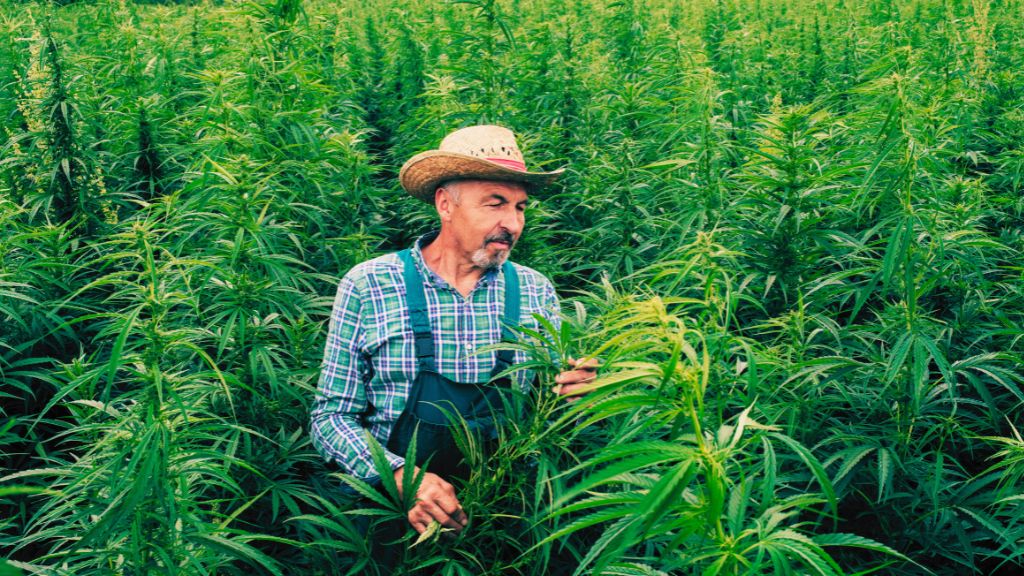
The year 2025 has delivered a federal THC ban and a crushing blow to the hemp industry (including Naturally Mignon).
After months of uncertainty and intense lobbying from multiple industries, Congress passed sweeping legislation that fundamentally reshapes the landscape for hemp-derived THC products.
Moreover, states like Texas have already enacted their own restrictions, creating a patchwork of regulations that leaves businesses, farmers, and consumers scrambling for answers.
What does this mean for the future of hemp? Furthermore, how did we get here, and what happens next?
Understanding the Federal Hemp Ban
The federal hemp THC ban emerged from an unlikely place, a government funding bill designed to end the longest shutdown in U.S. history.
Consequently, President Donald Trump signed the legislation into law in November 2025, and with it came provisions that could effectively eliminate the $28 billion hemp industry as we know it.
The new law redefines hemp in highly restrictive terms. Specifically, it limits legal hemp products to those containing no more than 0.4 milligrams of total THC per container.
Additionally, the legislation bans any cannabinoids that are synthesized or manufactured outside the cannabis plant, including popular variants like delta-8 THC, HHC, and THC-P.
However, there’s a critical detail that gives the industry hope: the ban doesn’t take effect until the end of 2026. This one-year implementation delay has opened a window for advocacy, education, and potential legislative changes.
As U.S. Rep. John Carter from Texas explained to Naturally Mignon in an email:
“These provisions do not fully take effect until the end of 2026, giving Congress time to evaluate the impact of the law and consider responsible policy alternatives that balance consumer protection with the needs of legitimate hemp producers and rural communities. You can be sure I will keep your views in mind as Congress continues to monitor and review this issue.”
What Rep. Carter’s Statement Really Means
Representative Carter’s words reveal an important truth about the current situation. Essentially, the hemp ban passage isn’t necessarily the final word on this issue.
Instead, Congress has built in time to reassess the impact and potentially modify the legislation before it takes full effect.
In practical terms, this means several things could happen during 2026:
- Legislative amendments: Congress could introduce new bills that modify the restrictive language, replacing an outright ban with comprehensive regulatory frameworks.
- Study outcomes: The FDA and USDA have been mandated to conduct studies on hemp products, and their findings could influence policy changes.
- Political pressure: The industry has 365 days to mobilize voters, educate lawmakers, and demonstrate the economic impact of the ban.
- State-level responses: Individual states may push back against federal overreach, particularly those with established hemp markets.
Meanwhile, industry advocates are viewing this delay as an opportunity rather than a death sentence.
The U.S. Hemp Roundtable has already declared their mission: “365 days to regulate, NOT ban.”
The Texas Hemp Ban: A Preview of Federal Action
Before the federal government acted, Texas became a battleground for hemp policy. Throughout 2025, the Lone Star State wrestled with how to handle its $8 billion hemp industry and more than 8,000 permitted retailers.
Lt. Gov. Dan Patrick made banning THC products one of his top priorities, successfully pushing Senate Bill 3 through the legislature.
The Texas hemp ban would have completely outlawed all THC products outside the state’s extremely limited medical cannabis program.
Nevertheless, Governor Greg Abbott vetoed the measure in June 2025, citing the industry’s significant economic impact.
Abbott’s Executive Order: A Middle Ground
Rather than accepting a complete ban, Governor Abbott issued Executive Order GA-56 in September 2025. This order directed state agencies to implement stricter regulations without destroying the industry entirely.
Specifically, the new rules include:
- Ban on sales to anyone under 21 years old
- Mandatory ID verification at point of sale
- Enhanced testing and labeling requirements
- Stricter licensing for manufacturers and retailers
However, the federal THC ban now threatens to override Texas’s regulatory approach.
When the federal restrictions take effect in late 2026, they will directly conflict with Texas law, potentially forcing the state to choose between federal compliance and supporting its local industry.
Interestingly, Texas agencies have announced they will proceed with implementing state regulations despite the looming federal ban.
The Texas Alcoholic Beverage Commission moved forward in November 2025 with permanent rules for the hemp industry, signaling that state officials believe the federal law may yet be modified.
Behind the Ban: Beer and Alcohol Industry Involvement
One of the most significant factors driving the hemp ban has been aggressive lobbying from the alcohol industry.
As hemp-derived THC beverages gained market share, major alcohol companies recognized a competitive threat.
Research shows that consumer demand for alcohol has shifted downward in recent years.
Meanwhile, studies indicate that many consumers are gravitating toward hemp and cannabis products as alternatives to traditional alcoholic beverages. This trend hasn’t gone unnoticed by industry giants.
A United Front Against Hemp
In November 2025, a coalition of major alcohol industry associations sent a letter to congressional leaders demanding action. The groups included:
- American Distilled Spirits Alliance (ADSA)
- Beer Institute (BI)
- Distilled Spirits Council of the U.S. (DISCUS)
- Wine America
- Wine Institute
These organizations, representing companies that produce virtually all beer, distilled spirits, and wine sold in the United States, called on Congress to “act immediately to remove hemp-derived THC products from the marketplace until a robust federal regulatory framework is established.”
Notably, lobbying disclosures from the third quarter of 2025 revealed a surge in hemp-related lobbying from alcohol companies.
Major players including Molson Coors and others dramatically increased their focus on influencing hemp legislation during the months leading up to the ban’s passage.
Division Within the Alcohol Industry
Interestingly, not all alcohol industry stakeholders supported the ban. A coalition of alcohol distributors sent their own letter to Congress urging lawmakers to regulate and tax hemp products like alcohol rather than ban them outright.
These smaller distributors argued that prohibition doesn’t work, drawing parallels to the failed alcohol prohibition of the 1920s.
Their letter warned that banning hemp products would simply drive the market underground, creating more dangers for consumers rather than protecting them.
Nevertheless, the larger alcohol lobbies ultimately won the day, successfully pressuring Congress to include the restrictive hemp language in the government funding bill.
The Marijuana Industry’s Role in the Hemp Ban
Perhaps even more surprisingly, regulated cannabis companies actively supported the federal hemp ban.
This created what industry observers described as a “bizarre alliance” between marijuana businesses and typically opposing groups.
Why Would Cannabis Companies Support a THC Ban?
The answer comes down to competition and regulatory fairness. Regulated marijuana businesses operate under strict state oversight, including:
- Extensive licensing requirements
- Mandatory testing and quality control
- Age verification systems
- Heavy taxation under IRC 280E
- Banking restrictions
- No interstate commerce
By contrast, hemp-derived THC products exploited what many called the “2018 Farm Bill loophole” to operate with minimal regulation.
These products could be sold online, shipped across state lines, and distributed in gas stations and convenience stores, all without the regulatory burden facing state-licensed cannabis dispensaries.
Boris Jordan, CEO of cannabis company Curaleaf, explained the industry’s perspective, noting that regulated cannabis businesses viewed hemp as an unwelcome competitor playing by entirely different rules.
Strange Bedfellows: The Ban Coalition
The push for the hemp ban united groups that rarely agree on anything:
- Regulated cannabis companies: Viewing hemp as unfair competition
- Major alcohol lobbies: Protecting market share from hemp beverages
- Anti-marijuana groups: Organizations like Smart Approaches to Marijuana (SAM) celebrating what they called “the biggest change in marijuana policy in a generation”
- Law enforcement: Concerned about unregulated products and enforcement challenges
- 39 state attorneys general: Claiming hemp products threaten public health and undermine law enforcement
Meanwhile, hemp industry advocates argue that this coalition has misrepresented the facts. They point out that properly regulated hemp markets ,like those in several states, have operated safely without the problems critics cite.
Are THC Gummies Legal? The Current State of Play
Right now, the answer depends on where you live and when you’re asking. Currently, most THC gummies and other hemp-derived products remain legal under federal law through the end of 2026. However, state laws vary dramatically.
State-by-State Breakdown
The regulatory landscape includes:
- Six states plus Washington D.C.: Have already banned all consumable hemp products containing any amount of THC
- 24 states: Permit intoxicating hemp products, though 15 of these allow only low-potency products
- Remaining states: Have various levels of regulation, from tight oversight to minimal rules
In Texas specifically, THC gummies remain legal for adults 21 and older under current state regulations. However, the impending federal ban creates uncertainty about whether this will continue past 2026.
What Happens in 2026?
Once the federal ban takes effect, THC gummies containing more than 0.4 milligrams of THC per container will become illegal under federal law. This extremely low threshold effectively eliminates most products currently on the market.
According to the U.S. Hemp Roundtable, the vast majority of hemp products on the marketplace—including many non-intoxicating ones exceed the 0.4 milligram threshold.
Even full-spectrum CBD products naturally containing trace amounts of THC could technically violate the new law.
The Economic Impact: Jobs, Farmers, and Communities at Risk
The hemp ban threatens more than just retail businesses.
According to industry estimates, approximately 300,000 jobs exist in the hemp sector that emerged after the 2018 Farm Bill legalized the crop.
These jobs span:
- Farmers growing hemp
- Manufacturers processing raw hemp into products
- Retailers selling finished goods
- Logistics and distribution workers
- Testing laboratories
- Ancillary service providers
Moreover, the economic impact extends beyond direct employment.
Hemp farming has provided a crucial alternative crop for agricultural communities, particularly in states like Kentucky, where Senator Mitch McConnell championed the original 2018 Farm Bill.
The Farming Crisis
For hemp farmers, the one-year delay creates a particularly painful dilemma. Mike Simpson, co-founder of Lovewell Farms in Rhode Island, explained the agricultural reality in an op-ed:
“We make seed purchases in March, plant in April and harvest in October. If the ban takes effect in November 2026, we could be forced to destroy our entire crop at the end of next season, despite following all the rules. That’s not a transition plan, it’s a trap.”
Simpson and other farmers are calling for at least a 720-day delay to accommodate real-world agricultural timelines.
Without this extension, farmers face the impossible choice of planting a crop that may be illegal before harvest or abandoning their fields entirely.
States Dependent on Hemp
Several states have built significant hemp infrastructure and tax revenue systems around the industry:
- Kentucky: Ironically, the home state of Sen. McConnell, who both legalized and then helped ban hemp
- Texas: Where the $8 billion hemp industry employs over 50,000 people
- Utah: With substantial hemp cultivation
- Minnesota: Where hemp taxes fund addiction services and public health programs
These states face not only job losses but also significant revenue shortfalls.
Several states dedicate hemp taxes to essential services, including addiction treatment programs creating the ironic situation where banning hemp could defund the very services meant to address substance abuse.
The Black Market Concern: Where Will Consumers Turn?
Perhaps the most troubling aspect of the hemp ban is what industry experts predict will happen to consumer demand.
Studies consistently show that demand for THC products continues rising as consumers seek alternatives to alcohol and pharmaceutical medications.
That demand won’t disappear just because Congress bans legal products. Instead, executives warn, it will shift to illicit markets where products face no testing, no age restrictions, and no quality control.
Lessons From Alcohol Prohibition
The alcohol distributors’ letter to Congress drew explicit comparisons to Prohibition-era America.
They noted that banning alcohol in 1919 didn’t eliminate drinking—it simply created a thriving black market controlled by criminals.
Similarly, banning regulated hemp products could push millions of consumers toward dangerous, untested alternatives.
As one hemp industry executive warned: “What this ban is going to do is it’s going to force all those little players right now into the illegal market. Companies have got way too much money invested in this and the demand is still there and growing.”
The Texas Experience
Texas offers a preview of this dynamic.
In states like Texas with limited medical cannabis programs and no adult-use marijuana market, the federal ban would leave the illicit market as the only option for consumers seeking THC products.
Law enforcement agencies could struggle to trace supply chains and identify dangerous products without the paper trail created by legitimate businesses.
The Path Forward: Can the Industry Survive?
Despite the dire situation, hemp industry leaders haven’t given up. They’re viewing the one-year delay as an opportunity to mount a comprehensive lobbying campaign aimed at replacing the ban with sensible regulations.
The Regulatory Alternative
Representative Morgan Griffith (R-Va.) has circulated draft legislation that would establish a detailed regulatory scheme for hemp products rather than banning them. This approach would include:
- Specific THC milligram thresholds based on product type
- Comprehensive labeling requirements
- Age verification systems (21+)
- Third-party laboratory testing
- Independent licensing systems
- Excise taxes similar to alcohol
- FDA authority over cannabinoid hemp products
Many industry stakeholders favor a model splitting responsibility between federal agencies, with the FDA overseeing product safety and the Alcohol and Tobacco Tax and Trade Bureau handling taxation and distribution.
Midterm Election Strategy
The hemp industry is already preparing to make this a political issue in the 2026 midterm elections.
Thomas Winstanley, executive vice president of Edibles.com, previewed the strategy: senators and representatives who support the ban in states with legal hemp frameworks could face electoral consequences.
Specifically, Democrats in states like Georgia, Minnesota, and other locations with established hemp markets may feel pressure from constituents who rely on hemp for their livelihoods.
The industry hopes this political calculus will encourage lawmakers to support regulatory alternatives rather than maintaining the ban.
Minnesota’s Resistance
Already, some lawmakers are pushing back. Democratic members of Congress from Minnesota have introduced legislation to reverse the federal ban, recognizing that their state has built a successful, well-regulated hemp market that serves consumers safely.
What This Means for Consumers and Businesses
If you’re a consumer who uses hemp-derived products, here’s what you need to know:
- Products remain legal through 2026: You can continue purchasing hemp products for now
- State laws still apply: Check your local regulations, as some states have already banned these products
- Prices may fluctuate: Uncertainty could affect supply chains and pricing
- Quality matters more than ever: Stick with reputable brands that conduct third-party testing
- Stay informed: The situation is fluid and could change significantly during 2026
For businesses in the hemp industry, the message is equally clear: use this year wisely. The industry has united around a strategy of advocacy, education, and grassroots mobilization. Additionally, businesses should:
- Join industry advocacy groups and trade associations
- Contact elected representatives regularly
- Educate customers about the situation
- Maintain strict compliance with current regulations to demonstrate industry responsibility
- Prepare contingency plans for multiple scenarios
- Document economic impact in your community
The Bigger Picture: Cannabis Policy Chaos
The hemp ban highlights a fundamental problem with American cannabis policy: the federal government treats hemp and marijuana as if they’re completely unrelated, even though they’re the same plant.
This fractured approach creates absurd situations:
- Marijuana remains federally illegal as a Schedule I drug, yet 40 states have medical programs and 24 have legalized adult use
- Hemp was federally legal, creating a massive industry, but is now being recriminalized
- Some states ban hemp but allow marijuana, while others do the opposite
- Banking remains difficult for all cannabis businesses due to federal prohibition
The National Cannabis Industry Association has called for comprehensive reform that treats cannabis as one plant, with unified regulations that protect public health while supporting legitimate businesses. Until that happens, expect continued chaos and contradictory policies.
2026: A Year of Uncertainty and Opportunity
The 2025 hemp ban represents a pivotal moment for the cannabis industry.
What happens during 2026 will determine whether America maintains a legal, regulated hemp market or pushes millions of consumers toward dangerous black-market alternatives.
Representative Carter’s comments suggest that Congress understands this is a complex issue deserving thoughtful consideration rather than rushed prohibition.
The one-year delay provides a genuine opportunity for the industry to make its case, educate lawmakers, and push for regulatory solutions that protect consumers without destroying a $28 billion economic sector.
Moreover, the Texas experience offers a roadmap: Governor Abbott’s veto of the state hemp ban and subsequent regulatory approach demonstrated that workable alternatives exist.
If federal lawmakers follow this model prioritizing regulation over prohibition the industry could emerge from 2026 stronger and more legitimate than ever.
However, success isn’t guaranteed. The hemp industry faces powerful opponents in the alcohol lobby, cannabis industry, and anti-marijuana groups.
Therefore, the next year will require unprecedented unity, strategic advocacy, and grassroots mobilization from everyone who believes in sensible hemp policy.


